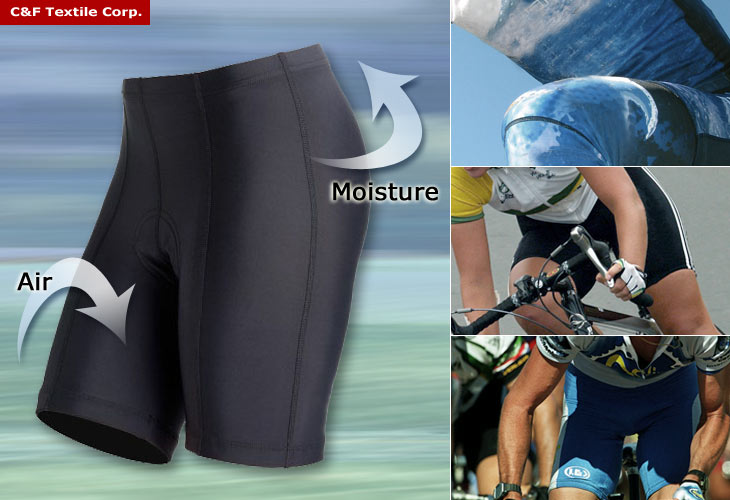Moisture Management Fabric Keeps Cool & Dry with Sports Jersey, Cycling Jersey, Bike Jersey, Exercise Clothing Fabric, Knitted Fabric, Knitting Fabric
 Moisture Absorbent Fabric is Carving New Niche Markets and is expected to continue growing
Moisture Absorbent Fabric is Carving New Niche Markets and is expected to continue growing 

Since cycling has become one of the most popular outdoor activities, the market for performance bike jersey has significantly expanded in recent years and is expected to grow in the next several years.
Cycling jersey was originally made from wool, which is nice and warm for cold conditions however it’s definitely not a good idea for heavy activities. Besides, it will become so heavy when it gets wet.
Man-mad polyester fibers changed cycle jerseys which has better moisture absorption. Riders may enjoy cycling more and feel comfortable in any temperatures.
Polyester fabric is a strong and durable synthetic fabric. Polyester fabric dries quickly and can be washable or dry clean only, so check your tags.
An analysis published by Just-Style concludes that performance sportswear has risen 19.4% over the last four years and will continue to be so. Among the hottest selling knitted fabric was moisture management fabric (MMF) sportswear and is expected to continue growing.
The knitting fabric technology, skills and design capability are well developed which stimulate MMF sportswear continue growing. Manufacturers shift their attention to the high-end moisture absorbent fabric and introduce sophisticated materials, such as carbon fiber, far infrared fiber, UV-cut fiber, anti-bacteria fiber and minus ion fiber are used in making performance sportswear, e.g. cycling jerseys. On the other hand, a great number
of consumers place increasing importance on the performance of apparels as well.
Performance jersey is an issue for the serious athlete but for the majority of riders’ performance cycling jersey is mostly about "comfort".
Basically, it’s better to have a good condition of MMF cycling clothes because rider gets hot and sweats while biking. Unbreathable bike clothing keeps perspiration inside the fabric and sticks on skin which is really annoyed riders. In terms of MMF bike clothing, it should keep rider cooler, cleaner and drier after a long hour cycling.
So, what is MMF?
Moisture management fabric (MMF) is also called moisture wicking fabric, moisture absorbent fabric or moisture fabric. It’s defined as the ability of fabric’s hygroscopicity and keeping dry. High-end moisture management fabrics are decided by sophisticated materials such as fiber or yarn. A fiber is the smallest visible unit of any textile product. Fibers are flexible and may be spun into yarn and made into fabrics.
There are many factors would affect performance of fabrics, such as fiber shape, yarn structure, weaves structure, density of fabric per square meter and after dye process are major factors. The fiber industries developed various special sections for different purposes.
Most moisture wicking fabric has special knitting designed structure on two surfaces, which fabric is able to transfer moisture from inner surface to outer surface and keep the skin dry and comfortable.
As moisture fabric has become one of the key performance criteria in today’s sportswear industry, a new method called the moisture management tester is developed to evaluate textile moisture management properties. This new method can be used to quantitatively measure a fabric’s one way transport capacity and its overall moisture management capacity.
for related products


 Ready-eSupport
Ready-eSupport








